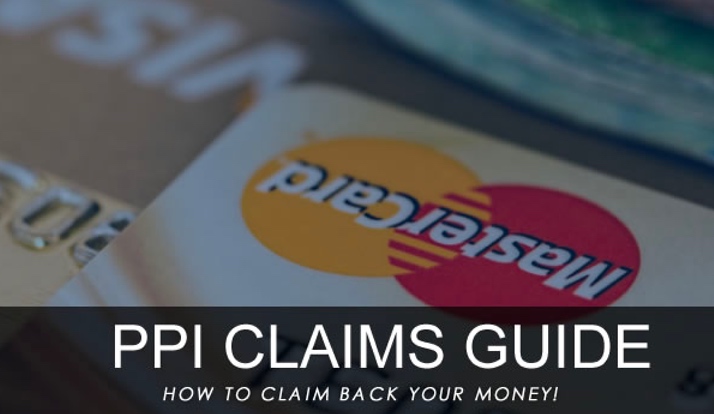If you have or had a credit card, loan or store card, you may have been sold payment protection insurance (PPI). It’s a product that’s been hugely mis-sold by banks and loan providers. Find out if you have a claim.
How to reclaim mis-sold PPI
PPI was designed to cover the premiums on your loan or the payments on your credit card if you couldn’t work because you were ill or you’d lost your job. The problem was with the way PPI was sold – and mis-sold – in the past. I’ve never been a fan of PPI for two reasons:
Policy exclusions: Many of the policies that were sold by banks and insurers (often at the same time as you took out a loan or credit card) had lots of exclusions. This meant many people wouldn’t be able to make a claim if they lost their job, but this was often not explained.
Cost: Although it’s possible to get a PPI policy that’s reasonable value for money, banks and insurers often pushed overpriced policies onto consumers without giving them the option to shop around.
Have you been mis-sold PPI?
Not everyone who has a PPI policy has been mis-sold (i.e. sold something that wasn’t suitable for them). But if you fall into one of the following categories, you may have a claim. In that case, you may be able to get your premiums back (plus interest).
You may have a claim if:
You were self-employed. The vast majority of PPI policies won’t pay out if you’re self-employed or on a fixed-term contract and you lose your job/work.
You had medical problems you weren’t asked about. PPI policies rarely pay out for ‘pre-existing medical conditions’ – illnesses you’d suffered from before you took out the policy.
You weren’t told about exclusions. In many cases, policyholders weren’t told that stress, pregnancy or back problems weren’t covered.
You were retired or over 65 or 70 at the time. If you were retired you wouldn’t be able to claim on the policy in the first place and if you were aged over 65 or 70 (even if you were still in work) you might not have been covered as most policies have an upper age limit.
You were told that PPI was compulsory. A number of banks and lenders told consumers that they had to take out PPI in order to get the loan.
Your lender received a high level of commission. If the commission paid to the bank or credit card company added up to more than half the cost of the PPI policy.
SAVVY TIP: In some cases banks and lenders included PPI policies as part of the loan package without telling customers upfront. This is a clear-cut case of mis-selling. Others automatically charged the policy as a single upfront premium, which the borrower then paid interest on (often at a high rate). This is also a situation where you should make a claim.
How do you claim for PPI?
Your first step is to complain to the bank or credit card company that sold you the PPI policy. The big banks have PPI complaints telephone numbers you can ring or you can submit your complaint by a form that you can get from your local branch or download online. I’ve compiled a list with links to the big banks’ PPI information on their websites, which you can see below.
SAVVY TIP: Don’t use a claims management company! There’s no need and they will often take up to 35% of the amount you get back (plus VAT).
Step 1: Contact the company that sold you the policy. You will normally have to put your complaint in writing. If you want to use a template letter, there are plenty around. You can send this letter to your bank or PPI provider. The bank should either resolve your complaint within eight weeks or tell you how it is getting on.
Step 2: The company has eight weeks in which to look into your complaint. It can decide to uphold your complaint and pay you compensation or reject it because it doesn’t think you’ve been mis-sold.
Step 3: If your complaint is upheld, you’ll be told that you will be paid compensation. The compensation you’ll receive will be a refund of your PPI premiums, plus interest you were charged on those premiums plus 8% interest per year. The 8% interest a year is compensation for not having use of the money while you had the PPI policy. It is not linked to the interest rate you paid at the time.
Step 4: If you accept the amount of compensation you’ll be paid, you should receive the payment. If you are not happy with the amount you’re being offered, or if the bank or loan company says it doesn’t believe you were mis-sold PPI, you can complain about their decision or take your complaint to the free to use FOS
Step 5: If you need to complain to the Financial Ombudsman Service, do so within six months. The rules say that you should complain to the FOS within six months of getting your complaint rejection letter from the bank.
SAVVY TIP: There is some flexibility in the six month rule in that if, for example, you were out of the country or ill during that time and were unable to submit your complaint, the FOS may still be able to deal with it. The same applies if your bank did not tell you that you had the right to take your complaint to the FOS if you were not happy.
If you were sold your policy before 2005. The way PPI was sold wasn’t regulated by the Financial Conduct Authority until 14th January 2005. However, you may still be able to make a claim for a sale relating to before 2005 if the company that sold you the product was covered by a self-regulatory scheme at the time. Most large banks were but some smaller brokers weren’t. It’s still worth complaining as you have nothing to lose, but in some cases, if your claim for PPI compensation is turned down, you may not be able to complain to the Financial Ombudsman Service about it.
Don’t give up!
Many people don’t complain to the Financial Ombudsman Service once their bank or lender has rejected their complaint. But the Financial Ombudsman Service finds in favour of the majority of customers whose complaint has already been rejected. The Financial Ombudsman Service has a payment protection insurance factsheet (opens as a PDF) and a whole section on mis-sold PPI on its website.
SAVVY TIP: If you’ve complained about mis-sold PPI before and had your complaint rejected, you may be able to complain again. Why? The reason is if there was a high level of commission earned by the bank or card company on the sale. This is often referred to as Plevin (after a court case). If the commission level was more than half the cost of the PPI policy and you weren’t told, you could make a complaint about mis-sold PPI on the basis of the Plevin ruling. You can find out more about this on the FCA website.





Thank you for reading, if you liked the article and found it useful please share it with your friends and loved ones
We think it's important you understand the strengths and limitations of the site. We're a journalistic website and aim to provide the best Savvy Money Saving guides and tips, but can't guarantee to be perfect, so do note you use the information at your own risk and we can't accept liability if things go wrong.
We often link to other websites, but we can't be responsible for their content.
If a link has an * by it, that means it is an affiliated link and therefore it helps Graceful Living Journey stay free to use, as it is tracked to us. If you go through it, it can sometimes result in a payment or benefit to the site. It's worth noting this means the third party used may be named on any credit agreements.
This site is not a part of the Facebook website or Facebook Inc. Additionally, this site is NOT endorsed by Facebook in any way.